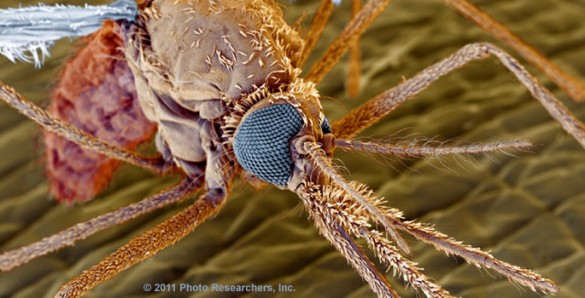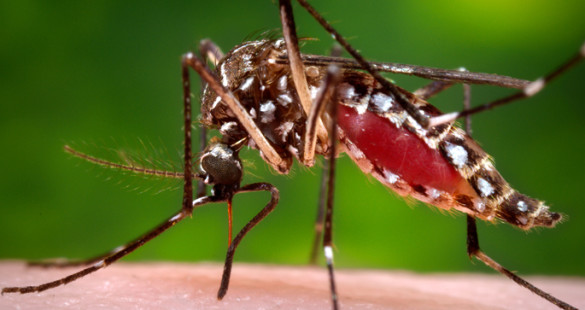
The laboratories of the Cornelius Vanderbilt Professors of Biological Sciences Laurence Zwiebel and Antonis Rokas played an important supporting role in a major genetic study of malaria-carrying mosquitoes published this week in the journal Science.
An international team of more than 100 scientists sequenced the genomes of 16 different species of Anopheles mosquitoes. Anopheles are responsible for transmitting malaria parasites that cause an estimated 200 million infections and more than 600,000 deaths each year. However, of the nearly 500 different Anopheles species, only a handful are responsible for spreading the human malaria parasite.
So the team sequenced the genomes of a selection of Anopheles from around the world, some that carry malaria and some that don’t, and compared them with the previously sequenced genome of the deadliest species of them all: Anopheles gambiae.
“[rquote]Although Anopheles gambiae is the most famous and well studied, there are other species that carry and spread different strains of the malaria parasite in other parts of the world that we don’t know much about.[/rquote] The availability of their complete genomic sequences will hopefully stimulate research to understand their biology and capacity to transmit malaria,” said Rokas.
The role of the Vanderbilt researchers was to compare the chemosensory systems of the different species to see if they could identify differences in the way the “noses” of the malarial and non-malarial species work, particularly when it comes to seeking out prey. Xiaofan Zhou, a research associate with a joint appointment in both the Rokas and Zwiebel labs did much of the computational heavy lifting that made this possible.
“The most unexpected thing that we found is that there weren’t any major differences,” said Zwiebel. “There are much greater differences in the olfactory systems of related species of fruit flies and other insect families that have been studied.”
Rokas considers the discovery that all 16 of the Anopheles species to have essentially the same genetic olfactory tool kit to be counter-intuitive. “Now we have to determine if they all function in the same way as well.”
The goal of the study is to advance understanding of the biological characteristics of mosquitoes in order to find better ways to combat an illness that has a major impact on global public health.














